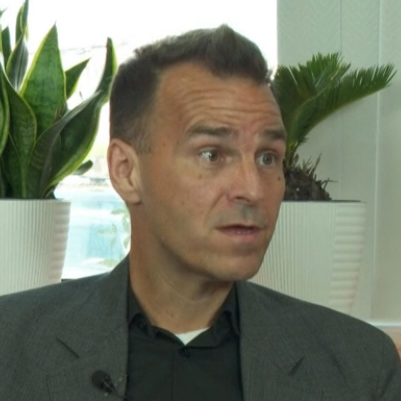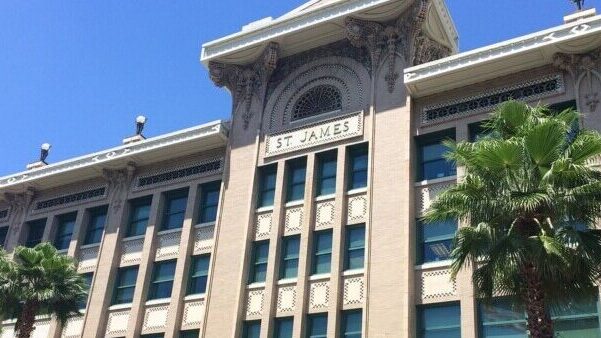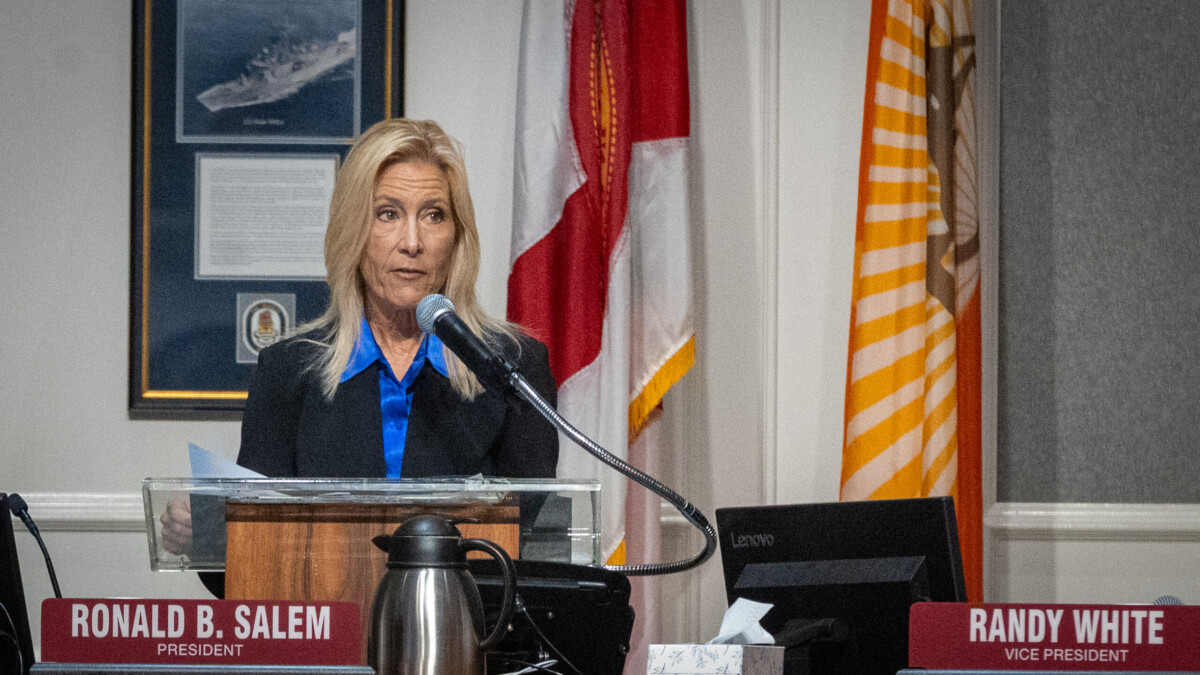
Because of the off-year local elections, Jacksonville’s political calendar runs on a different time frame than the rest of the world.
There’s probably a metaphor there somewhere, in a city topographically characterized by a river running from the south to the north, but we will leave that for a different time.
Yet while the nation is preparing for radical change in Washington, D.C., locals are just getting used to the electoral decisions made the year before – most prominently, the election of Mayor Donna Deegan.
In the immediate wake of that election, there were those who framed it as a perestroika event. Even some of her staunchest supporters seemed surprised that the first female mayor in local history capsized Daniel Davis and the wing of the then-fractured Duval Republican Party that backed him.
Last year’s elections, of course, are ancient history now. The millions of dollars spent differentiating between Davis and LeAnna Gutierrez Cumber in fevered ads are largely forgotten now, with 2023’s electoral verdict as remote as 2015’s battle between Lenny Curry and Alvin Brown.
And concomitantly, the novelty that buoyed Deegan’s first months in office is largely gone, leaving us in a position to judge her on results.
At least two of her moves will go down in history, insofar as we keep track of it locally.
One major development, obviously, was the stadium deal.
In exchange for stabilizing the Jaguars’ future in Jacksonville, locals were consigned to putting off for another half decade paying off the legacy pension debt from the defined benefit plan closed to new entrants seven years ago. The half-cent sales tax extended during the Curry administration was repurposed to pay for the stadium reno with bipartisan approval, allowing politicians across what passes for the local spectrum to give rousing speeches last summer.
What no one accounted for then was the massive underperformance of the franchise this season, of course. Late season games, particularly without Trevor Lawrence on the field, epitomize the concept of “good seats still available.” And as has been the case historically, the turnstile count at EverBank is predicated on how strong the road team draws.
Further optical issues cropped up this fall when local officials attended the holiday party on the Kismet, Jaguars owner Shad Khan’s yacht, an event that was ridiculously lowball valued by ethics advisor Carla Miller at less than $50 a person — as if Paul Harden and Mark Lamping catered the shindig with Publix deli items rather than top-shelf items worthy of the palate of one of the richest men in the world.
Retroactive justifications for attending the optical nightmare of an event abounded, with Councilman Rahman Johnson doing the most to defy credulity, saying that concerns were misplaced about legislators being feted and the real issue locally is food deserts. If the Khans are putting champagne, caviar, steak and oysters on food trucks and delivering them to underserved local communities, we haven’t heard much about it.
But that’s the price of doing business.
And speaking of business, the administration’s other capital “A” accomplishment this year was striking a deal with police and fire unions to get local first responders into the Florida Retirement System.
How much will that cost taxpayers? TBD. It depends on how many of them elect for the plan.
Deegan may or may not end up with those unions’ endorsements when she runs for reelection in 2027. Police have squawked about her not attending the funeral of Brad McNew, an off-duty corrections officer who was killed attempting to break up domestic violence in October.
But what’s more certain is that, between closing stadium and pension deals, the city budget doesn’t have a lot of room for economic downturn. Veteran observers of city government warn that staff reductions and pay freezes are possible. Much as is the case in Tallahassee, where economists warn that the state is on track for a roughly $7 billion deficit in FY 27-28 given current spending commitments, local number crunchers will have tough choices to make right around the time of the 2027 election.
The real question, of course, is whether any local Republican is positioned to take advantage and make Deegan a one-term mayor.
Speaking of Republicans, former City Council candidate Charles Barr is the new Republican Party of Duval chair, taking over from state Rep. Dean Black, who is moving on to focus on state and national initiatives.
Under Black, the local Republicans have messaged more aggressively and cohesively with the state party than they had in the years preceding him. The GOP also gained in registration, and President-elect Donald Trump carried the county against a Kamala Harris campaign that underperformed expectations here like everywhere else.
At least one former chair of the local party is giddy about Barr’s ascendance, telling me that old donors are likely to engage in a way they haven’t in recent years.
Whether that matters is an open question, though, given that legislative maps on the federal, state, and local levels are all pretty much baked in through dint of reapportionment that happened in recent years.
Handling the fast-approaching 2027 elections is job one for the party chair, and if he fumbles the bag, history will see him as a failure in the role. Barr’s eventual legacy will be determined by how effectively he can consolidate the party behind a challenger to Deegan, and his first order of business should be to galvanize the party to take back the mayor’s office and the property appraiser position held by Democrat Joyce Morgan.
He won’t make friends doing this, but he may want to take a tip from Robin Lumb, who figured out a decade ago that the local party needed to unite behind Lenny Curry over Bill Bishop, and engineered an endorsement that was controversial in the moment but the right move in terms of upsetting the popular Democratic incumbent.
Corrected: This column was updated after publication to correct the size of the projected state budget deficit.







